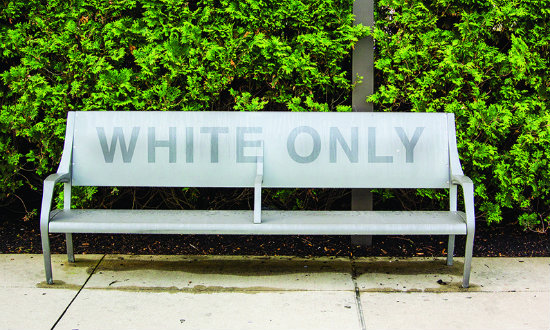
“Master Harold”… and the Boys by Athol Fugard. Lane Savadove directs for EgoPo Classic Theater through April 7, 2019, at the Latvian Society Theater, 531 N. 7th Street, Philadelphia.
This is a must-see.
To understand South Africa today, you need to know the culture that existed before recent times. Athol Fugard tells that story in his “Master Harold”… and the Boys (nothing is omitted; the three dots are part of the title). The play is a cornerstone in African culture. It vividly shows us how white supremacy predominated Fugard’s homeland, thus is an essential part of EgoPo’s season of African theater.
Apartheid was the name of racial segregation laws enacted by South Africa’s government when the nation’s non-white population surpassed the white. The word was pronounced — appropriately — apart-Hate. Although officially enacted only in 1948, it was based on the way-of-life that prevailed since the subjugation of the continent by white European powers a century earlier.
Master Harald is based on the real life of Fugard and his parents, privileged whites who employed two black men (condescendingly referred to as “boys”) to clean the family’s home and tea house, and as care-givers to young Harald, whom the servants have to address as “Master.” The older one, Sam, is more of a father figure than Hally’s real father. The play depicts escalating tensions which finally explode in hateful racist actions by Harald.
The offense is especially searing because these black men raised Harald with loving attention, while Hally’s father was a bully and an alcoholic. Yet the boy was inculcated with his prejudices, and in the end he craves his father’s approval and identifies with that bigoted point of view.
This slice of life in Africa has echoes in American history too. By sheer coincidence, one week before this production, a family member who was researching genealogy sent me a census report from 1940 that listed the occupants of my parents’ Philadelphia home. Among the dwellers was “Ann Jones, Negro, 22, servant, from North Carolina.” Seeing this in print was a shock.
I recall, from later years, other “help” (usually, but not exclusively black) that my parents employed to live with us. I wish I knew more about their origins, and where their families lived, and where they found employment afterwards. I do remember this incident from some time in the 1950s: At a gathering in our home a guest made a casual reference to “a schvartza” and my mother interrupted to reprimand her, “We don’t use that word in this house.” Needless to add, the N word was never used either.
When my sister and I were tots my mother earned $32 a week as a schoolteacher (but nothing in the summer) and my father, starting a small business, hoped to make a bit more than that. They paid the family maid $12 a week plus room and board. This employer-employee relationship seems patronizing, or even humiliating, by today’s standards. Yet you can also regard it as a gateway for blacks moving up from the segregated South to live with whites who didn’t demean them.
Aidan McDonald gives an earnest portrayal of young Harald. The Rowan University student conveys the confusion of an insecure adolescent who has decidedly mixed feelings about his parents. Damien Wallace is a tower of strength as Sam. He successfully projects moral authority, plus a remarkable degree of tolerance for Harald’s outrageous outbursts. Juspin Jones is a warm-hearted and humorous younger servant, learning the facts of segregated life — and ballroom dance steps — from his elder friend.
Lane Savadove does a superlative job, as we’ve come to expect. The emotions of the three characters are visceral under his direction. The set is a straightforward representation of a small tea shop, with pastries uncovered and tables set up for the shop’s intended all-white customers. The pathway from the theater lobby into the playing space is a peaceful trellised garden. This accentuates the disconnect between the benign world of South Africa’s whites in 1950 and the turmoil which was coming.
“Master Harold”…and the Boys is playing in repertory at EgoPo with another play that once was banned in South Africa, Egoli: City of Gold by Matsemela Manaka, directed by Katrina Shobe.